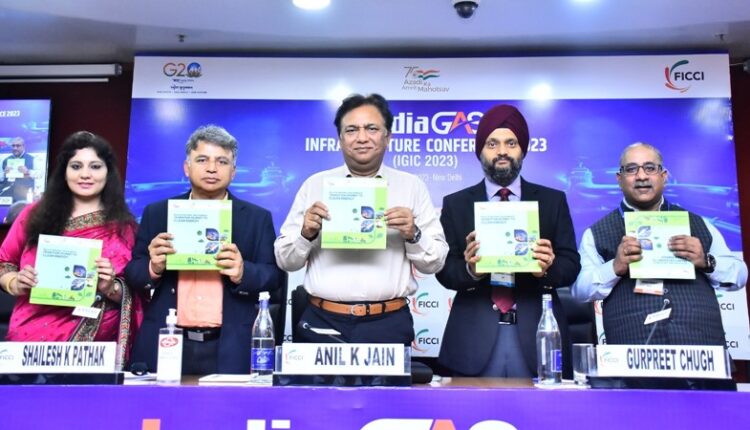Dichotomy Between Domestic and Imported Gas Must End: Dr Anil K Jain, Chairperson of the Petroleum & Natural Gas Regulatory Board
Ten News Network

NEW DELHI, July 10, 2023: The persistent dichotomy between domestic and imported gas, which is splitting the market, must be dismantled for the sake of a cohesive natural gas industry, expressed Dr Anil K Jain, Chairperson of the Petroleum & Natural Gas Regulatory Board, at the FICCI’s India Gas Infrastructure Conference 2023.
“I think this dichotomy between domestic gas and imported gas has to go because as long as we keep looking at gas in compartments, it will split the market,” said Dr Jain, highlighting the potential of the 45 million tons of free gas capacity in LNG terminals and only 25 MT coming through, there is an opportunity for the LNG business to integrate with the natural gas industry.
Dr Jain voiced optimism about the remaining pipeline from Jammu to Srinagar and (City Gas Distribution) CGDs in the Northeast and hilly districts, as well as in J&K. He expressed satisfaction with 94 per cent of the country under CGD licensing, despite acknowledging some challenges.
The chairperson also stressed the necessity of infrastructure readiness for the other two segments of CGD – the industry and commercial, signalling the likelihood of a second wave of investments. “So, I have a feeling that the infrastructure will have to ready itself for the other two segments of CGD, the industry and commercial and also in the larger scheme of things,” stated Dr Jain.
While the current mix of domestic and imported gas stands at 50-50, Dr Jain indicated that the ratio could soon tilt in favour of imported gas due to increasing market demands. Drawing parallels with the oil sector reforms in the 90s, he suggested that a similar transition is on the horizon for the gas sector, leading to the dismantling of the APM. Dr Jain stressed that the country must prepare for an imported gas-based regime given the increasing demand for gas and its relative cheapness compared to imported oil. “So there is every reason… gas availability is not a problem, but the markets in India need to amalgamate,” he concluded.
On the topic of unified tariffs, Dr Jain said it is a way of opening up markets, particularly in areas with difficult accessibility. He was also positive about financing, suggesting that financing becomes easier with higher capacity utilisation in pipelines.
Speaking on occasion, Prashant Modi, MD & CEO, Great Eastern Energy Corporation Limited (“GEECL”) and Chairman, FICCI Committee on Oil & Gas- Upstream, alluded to the imperative need for transforming India into a gas-based economy.
Commending the government’s efforts in promoting domestic E&P through the introduction of revenue-sharing mechanisms, Modi pointed out the need for additional ground-level work to enhance the ecosystem. He advocated implementing a Direct Benefit Transfer (DBT) system for gas subsidies, similar to the LPG subsidy. Furthermore, Modi recommended the establishment of a Standard Operating Procedure (SOP) for every layer of the gas infrastructure ecosystem to ensure compliance with laws, giving the government the liberty to monitor at any given time.
Gurpreet Chugh, Managing Director at ICF, delineated the strides India has made in the natural gas sector over the past two decades. He noted that India’s natural gas consumption has grown in India by 4 to 5 per cent CAGR over the past twenty years” owing to the evolution of the gas mix, with the substantial introduction of LNG, the expansion of the City Gas Distribution (CGD) network, and the emergence of technologies like Compressed Bio Gas (CBG).
He outlined several emerging opportunities for the gas sector, including the use of LNG in Heavy-Duty Vehicles (HDVs), an area where electric vehicles currently lack a viable solution. Other promising avenues include the growth of Compressed Bio Gas (CBG), which also aids in reducing air pollution, opportunities in biomass gasification, and the potential for producing green hydrogen that can be blended with existing gas networks.
On occasion, Shailesh K Pathak, Secretary General, FICCI, noted that the natural gas market and transition to gas in India is a success story where the government has laid down the infrastructure and regulatory structure, and now the private sector can leverage the enabling environment and serve their customers.

